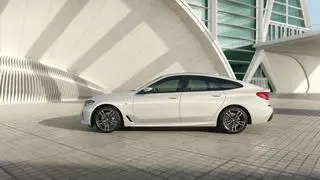With less than 24 hours to go before Donald Trump is sworn in as 45th President of US, the global car industry is bracing itself for a new regime.
Over the last fortnight, a slew of carmakers have announced investments totally nearly $20 billion in the US. Toyota Motor Corporation heads the list with $10 billion, albeit over a five-year period, while Hyundai and Kia are next in line with $3.1 billion. General Motors and Fiat Chrysler Automobiles will invest $1 billion each while Ford has earmarked an outlay of $700 million.
Small wonder then that Trump has every reason to feel on top of the world even while Mexico’s plans to emerge a key car producer could have been seriously derailed. This was especially evident in the backdrop of Ford shelving its original plan of investing $1.6 billion in Mexico and opting for the US instead as part of a revised business strategy.
No political pressureMany carmakers have insisted that their investments have little to do with political pressure from the new President. If this were the case, there was really no compelling reason for them to announce their grandiose plans in a rapid sequence of events. Trump acknowledged these in his tweets where warnings to companies such as GM and Toyota quickly resulted in the companies announcing their investment plans for the US.
Nobody can quite blame them at one level considering that there is big business at stake in the world’s second largest car market. And even if this means that these automakers need to factor in higher wage bills, it is still a better option than paying hefty import duties for cars imported into the US.
This precisely was the fear among automobile companies that a Trump regime could see an overhaul of the North American Free Trade Agreement (NAFTA), which covers the US, Canada and Mexico. For the moment, this is a zero tariff zone but there are very clear indications from the new President-elect that duties of up to 35 per cent could be imposed on cars entering the US from Mexico.
Threat for German carmakersMore recently, Trump had also sounded out a warning to German carmakers, which include big brands such as Daimler, BMW and Volkswagen, that they could face the prospects of paying high duties on cars shipped to the US. The better option was to invest in the country instead. It is now crystal clear that doing business with America is now going to be a different ballgame for a host of countries, which have had little reason to complain thus far.
It is also becoming increasingly evident that a new world order is gradually coming into place where global relationships are going to be realigned, which, in turn, will impact the auto industry. Britain’s Prime Minister, Theresa May, has made it amply clear that the country will exercise hard options following its move to exit the European Union.
Trump, who has been a vocal supporter of Brexit, has now made it clear that he is open to a new trade pact between the US and UK. All this is happening while brands sucha as Jaguar Land Rover and Nissan, with considerable investments in Britain, will ponder over the implications of a high duty regime with the EU. They will have their task cut out in formulating new business strategies keeping access to the US in mind.
It will also be interesting to watch how the emerging bonhomie between Russia and America will pan out in the Trump administration and if this will help the automobile industry. For the moment, this is extremely unlikely and looks far-fetched. Even while the Russian economy has been going through a roller coaster ride lately, car companies know only too well that it is a market with immense potential.
US, China relationshipThe bigger area of concern is the relationship between the US and China. From the auto sector’s point of view, investing in the Chinese economy is a no-brainer given that it is the world’s largest car producer with over 25 million units annually. It is GM’s biggest market whose long-term ally, SAIC Motor Corp, is now looking at growing the relationship to other parts of the world. Any political tension with China could have serious repercussions for American carmakers which they can ill-afford at this point in time.
In a way, it does seem ironical that there is so much talk of reviving the US auto industry which is in much better shape today. The worst periods were experienced during the post-Lehman crisis in 2009 when Detroit collapsed like a pack of cards with GM and Chrysler being the worst affected. It was during this time that the Obama administration pulled out all stops to get things back on track which saw Chrysler getting into the Fiat fold.
Today, the big-ticket investments will come in for sure into the US but this could be at the expense of Mexico. While companies like BMW have reiterated that they will go ahead with their plans in the region, there will be constant pressure to reroute investments to the US. The coming years are going to be particularly challenging for the global automobile industry which is already coping with a host of other issues on safety, emissions and political uncertainties.








Comments
Comments have to be in English, and in full sentences. They cannot be abusive or personal. Please abide by our community guidelines for posting your comments.
We have migrated to a new commenting platform. If you are already a registered user of TheHindu Businessline and logged in, you may continue to engage with our articles. If you do not have an account please register and login to post comments. Users can access their older comments by logging into their accounts on Vuukle.